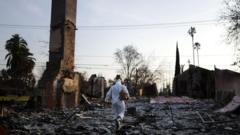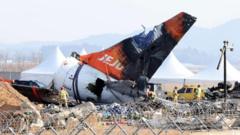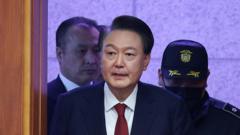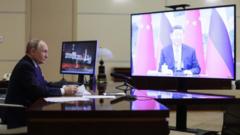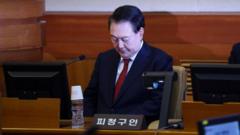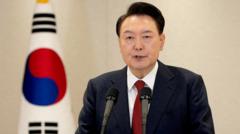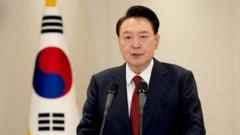The South Korean Ministry of Employment and Labor has ruled that celebrities, specifically K-pop group NewJeans, do not qualify as workers under labor law, igniting controversy and calls for industry reform.
Are Celebrities Workers? South Korea Declares They're Not
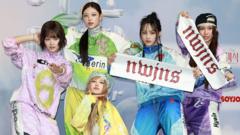
Are Celebrities Workers? South Korea Declares They're Not
The government's decision regarding K-pop stars' worker status sparks widespread debate and protests.
In a recent ruling, South Korea's Ministry of Employment and Labor controversially denied the worker status of K-pop group NewJeans. The decision arose following public allegations of workplace harassment from group member Hanni during a YouTube livestream, where she expressed concerns about their treatment by their record label, Ador. In her testimony to lawmakers, the 20-year-old singer claimed she and her bandmates faced bullying and neglect from company executives.
Despite the upsetting claims made by Hanni, the government stated that according to the Labour Standards Act, celebrities could not be classified as workers. This classification was attributed to the terms of their management contracts, which categorize them as independent contractors with no fixed working hours, thus exempting them from labor protections. "Individuals must meet specific criteria to be regarded as workers," elaborated Chunghwan Choi, a senior partner at Yulchon law firm in Seoul.
As this news spread, critics and fans alike voiced their frustrations online, rallying under the hashtag "IdolsAreWorkers." Many agreed that although the ruling may align with legal definitions, it highlights the urgent need for comprehensive reforms aimed at improving working conditions for talent within the high-pressure K-pop industry.
The ruling has reignited conversations surrounding the exploitation of artists, with experts suggesting that the lack of protective laws, labor unions, and government advocacy allows for continued abuse within the entertainment sector. CedarBough Saeji, an assistant professor specializing in Korean studies, pointed out the exhausting demands placed on K-pop idols, who often work long hours without adequate breaks.
Despite the controversy, calls for reform in the K-pop industry, including proposals akin to the Hollywood Talent Agency Act, aiming to protect artists from exploitative contracts, remain unaddressed by legislators. The ongoing debates signify a potential awakening within the South Korean entertainment industry, as more voices join the chorus advocating fair treatment and better conditions for its stars. As fans and advocates continue to push for change, the question of whether 'Idols are Workers' looms larger than ever.

